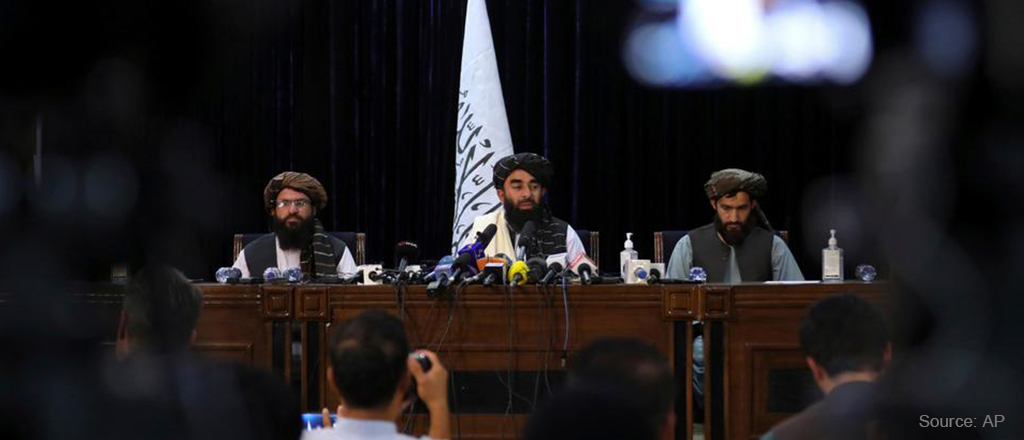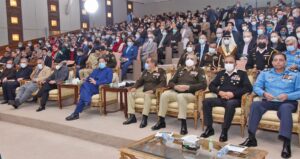Afghanistan Articles Dispatches 25/08/2021


Dr. Moonis Ahmar, Meritorious Professor of International Relations and former Dean, Faculty of Social Sciences, University of Karachi.
25 August 2021
As the dust is settling down following the fall of Kabul and takeover of Afghanistan by Taliban, it is time to analyze with critical thinking strategic and security implications on Pakistan. Sharing thousands of kilometers of borders with Afghanistan and experiencing decades of ordeals because of violence and bloodshed in that country, Pakistan is alert and vigilant to cope with security and strategic implications of Taliban’s return to power after an interlude of around 20 years.
In view of historical, cultural, religious, economic, strategic and security reasons, Pakistan is Afghanistan’s most important neighbor. How the unfolding of new changes in Afghanistan will have strategic and security implications on Pakistan and what should be Islamabad’s policy to deal with the change of guard in Kabul?
Amin Saikal in his book Modern Afghanistan A History of Struggle and Survival (New York: I. B. Taurus, 2004) vividly explains the dynamics of Afghanistan as: “rare in the country that has sustained as many blows as such hard blows, as the Afghanistan since its foundation as a distinct political unit in 1747. Yet the country has managed to survive and to retain some form of sovereignty and territorial integrity, despite numerous wars and invasions and swings between extremist ideological dispositions, ranging since from tribalist value systems to Marxism-Leninism and Islamic medievalism. It is the only country in this world that has experienced military occupation or intervention by Great Britain (twice in the nineteenth century), the Soviet Union (in 1980s) and the United States of America since late 2001.” And now Afghanistan almost after 20 years of U.S/Allied intervention and occupation is back to square one when on August 15, Kabul was occupied by the Taliban.
Pakistan’s predicament in Afghanistan is two-fold. First the threat of violence and bloodshed in that country following the takeover of Taliban and second the fragility of Afghan state. History is a witness to the fact that no single authority has been able to establish its writ in the whole of Afghanistan because of its tribal and cultural feuds. From any standpoint, Afghanistan is a multiethnic and multilingual country and no government in Kabul can succeed unless it gives representation to all major ethnic, lingual and sectarian groups.
Apparently, Taliban are able to establish control over the whole of Afghanistan except the volatile ‘Panjshir Valley’ north of Kabul. In terms of strategic and security implications of recent developments in Afghanistan on Pakistan one can figure out three major ramifications. First, if Taliban are able to establish an inclusive broad based government; observe human rights particularly concerning women and minorities; pursue a flexible approach on societal matters; ensure better governance for eradicating corruption and war lordism from Afghan society, one can expect them to seek legitimacy at the international level. A credible, legitimate and successful Taliban led government in Kabul will have a positive impact on Pakistan’s security. Pak-Afghan border will not only be secure but will witness vibrant trade and commercial activities.
Optimism, instead of pessimism, will shape things in Afghanistan in the days to come provided the stakeholders of that country are prudent, patient and tolerant to each other. Hostility of past Afghan regimes vis-a-vis Pakistan will certainly diminish. Unlike the last Taliban regime (1996-2001) when it was declared a ‘pariah’ state by the international community the second Taliban regime has an opportunity to follow a pragmatic and realistic approach on statecraft, mode of mode of governance and the world. Second, strategically speaking, the pressure on Pakistan from the Afghan side in terms of cross border intervention and terrorism particularly the one sponsored by India through its proxy elements will also substantially decline. In the last 20 years, India used its access to Kabul regime in order to patronize terrorist groups inside Pakistan particularly in the restive province of Balochistan, former Federally Administered Tribal Areas (FATA) and elsewhere. Now, change in Kabul is detrimental to India’s anti-Pakistan agenda because it was using the soil of Afghanistan through its proxy Tehrik-e-Taliban Pakistan (TTP). The erosion of Indian influence in Afghanistan will provide strategic space to Pakistan in terms of augmenting its economic, political and security ties with the new regime in Kabul. Furthermore, the U.S pressure on Pakistan to ‘do more’ in dismantling the alleged ‘safe heavens’ of Taliban and Al-Qaeda particularly in the tribal areas of Pakistan will also cease to exist. Yet, if Taliban are unable to eradicate fear and mistrust against them in Afghanistan and elsewhere about the ‘brutal’ mode of governance, one can expect resistance against the Taliban regime to take roots having adverse implications on Pakistan.
Afghanistan needs a break from decades of civil war, armed conflicts, wars and foreign intervention. Likewise, Pakistan as a strategic neighbor of Afghanistan also needs peace along Pak-Afghan border and also in that war torn country. Absence of peace in Afghanistan will be a major destabilizing factor in Central, West and South Asia thus jeopardizing Pakistan’s hopes and aspirations for meaningful ties with Kabul and access to Central Asia.
In the prevailing circumstances, Pakistan has made it clear that it has no ‘favorites’ in Afghanistan and its main aim is to help peace and stability in its western neighborhood. Yet, Pakistan must be cautious in rendering recognition to the Taliban regime in Kabul because despite the claims made by Zabiullah Mujahid, Taliban spokesman during a recent press conference in Kabul that the soil of Afghanistan will not be allowed to be used for terrorism, reports of deep rooted links between Haqqani network, which has been declared a terrorist organization by the international community and the Taliban, can be a source of embarrassment for Pakistan. If there are evidences of Al-Qaeda, Da’ish and TTP gaining ground in Afghanistan in connivance with the Taliban regime, it will not take the West and its allies long to retaliate with full force. In that case, India will be able to join the West and other anti-Taliban forces blaming Pakistan of giving space to the Taliban led Kabul regime. Russia and China who may have developed a soft corner for ‘new Taliban’ may rethink their policy and revert to their past anti-Taliban stance.
Political, security and strategic gains of Pakistan, which it has accomplished because of its consistent support to the Afghan peace process, will go a long way in fomenting cordial relations between Islamabad and Kabul in the days to come.
Disclaimer: The views expressed in the article are of the author and do not necessarily represent the institute’s policy.

